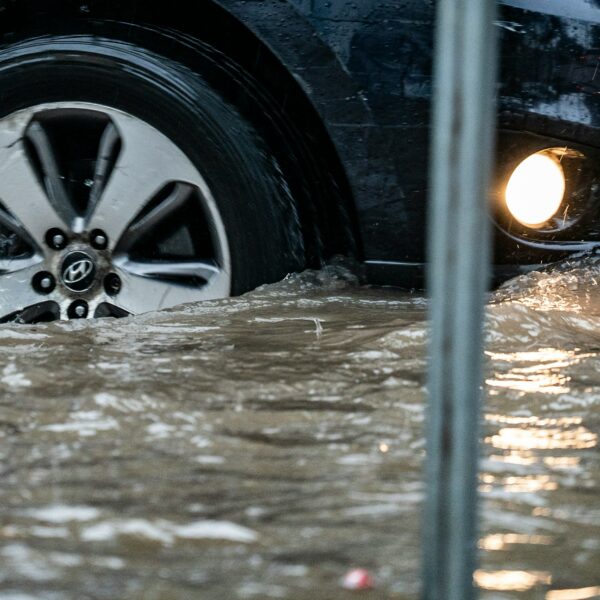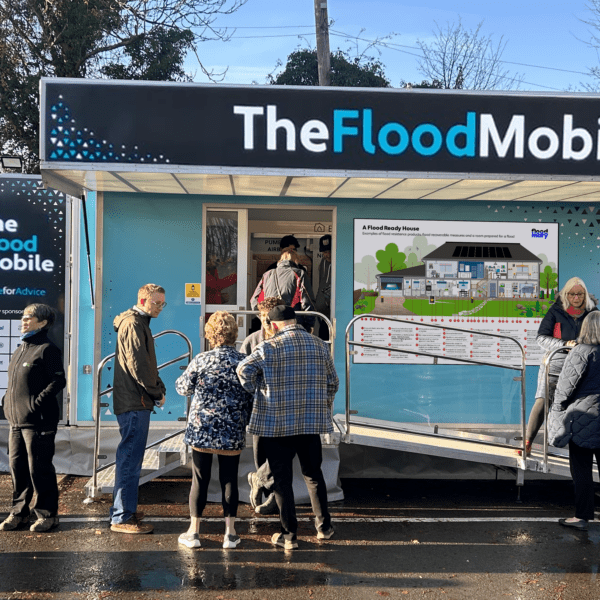
As a Mum to a young man with severe autism, severe learning difficulties, and epilepsy, I understand firsthand the unique challenges faced by families like ours. My son has challenging behaviour and has limited mental capacity. Now, imagine dealing with a flood while caring for a child like mine. This was my reality back in the early 2000s when our home was flooded.
My son lost all his toys and, more importantly, his place of stability, security, and routine. Any change of routine is difficult for us to manage, however flooding is totally overwhelming.
In recent years, I have been travelling around the country in a ‘Floodmobile,’ showcasing flood protection products and materials. Through my conversations with countless people, I’ve learned that many have autistic children or young adults, and for them, the misery of being flooded is greatly compounded.
Our discussions would shift from solely discussing flooding to instead how to cope with autism during such an event. On one occasion, a journalist asked if I would be willing to speak to a parent who had just experienced flooding and had a deeply distressed autistic child. This interaction reinforced the need for specific advice and support for families like ours.
According to the Environment Agency over 5.9 million people are at risk of being flooded – personally, I believe this figure is much higher. It’s important to therefore consider whether you could you be at risk of being flooded? Do you know what you’d do if a flood was imminent to reduce the terrible anxiety your autistic child could experience? Here are a few tips to help you prepare:
Pack a ‘Grab bag’ for your child:
Every child is different however here are a few suggestions:
- Duplicate favourite toys, books and any items (however weird!) you use to sooth your child’s anxiety. A new toy can also serve as a treat. My son loved Thomas the Tank Engine and could never have too many!
- Regular medication.
- Favourite food, drinks and treats.
- Spare clothes and nappies if needed.
- A list of your child’s nighttime routine.
- Add a favourite toy, pillow or blanket that smells familiar, just before you leave the house.
Plan Ahead:
It’s really essential that your child is out of the house before the flood arrives, Arrange for a well known and loved family member or friend to take care of your child in advance, in familiar surroundings. Sign-up for free Environment Agency Flood Warnings https://www.gov.uk/sign-up-for-flood-warnings to give you time to plan. There some great books about being flooded, which you could prepare your child with, or even make a social story, just for your family.
Stay Calm:
It’s crucial to remain calm yourself, even though it’s challenging. Create a flood plan, with a step by step list of actions to follow – this will help you to focus on what you need to do, ahead of time.
After the Flood:
There are two immediate things to consider after a flood:
- When calling your insurance company be sure to inform them that your child is autistic and that you will need urgent alternative accommodation. Trust me when I say that repair work can be very noisy and disruptive, so finding a temporary living situation will make a huge difference. Frame it as a ‘holiday’ to make the transition easier. (I made the mistake of living upstairs to avoid moving my son, however I then spent hours walking the streets with him to avoid the noise. It was cold, wet and miserable.)
- Alert your child’s school or nursery about the flood. This will help them understand the inevitable fallout and provide appropriate support.
Routine is vital for our children, but it will inevitably be disrupted during a flood. By preparing in advance and knowing what steps to take should the worst happen, you can mitigate some of the stress and help your child to feel as safe and secure as possible.
Copyright 2024, Mary Long-Dhonau



